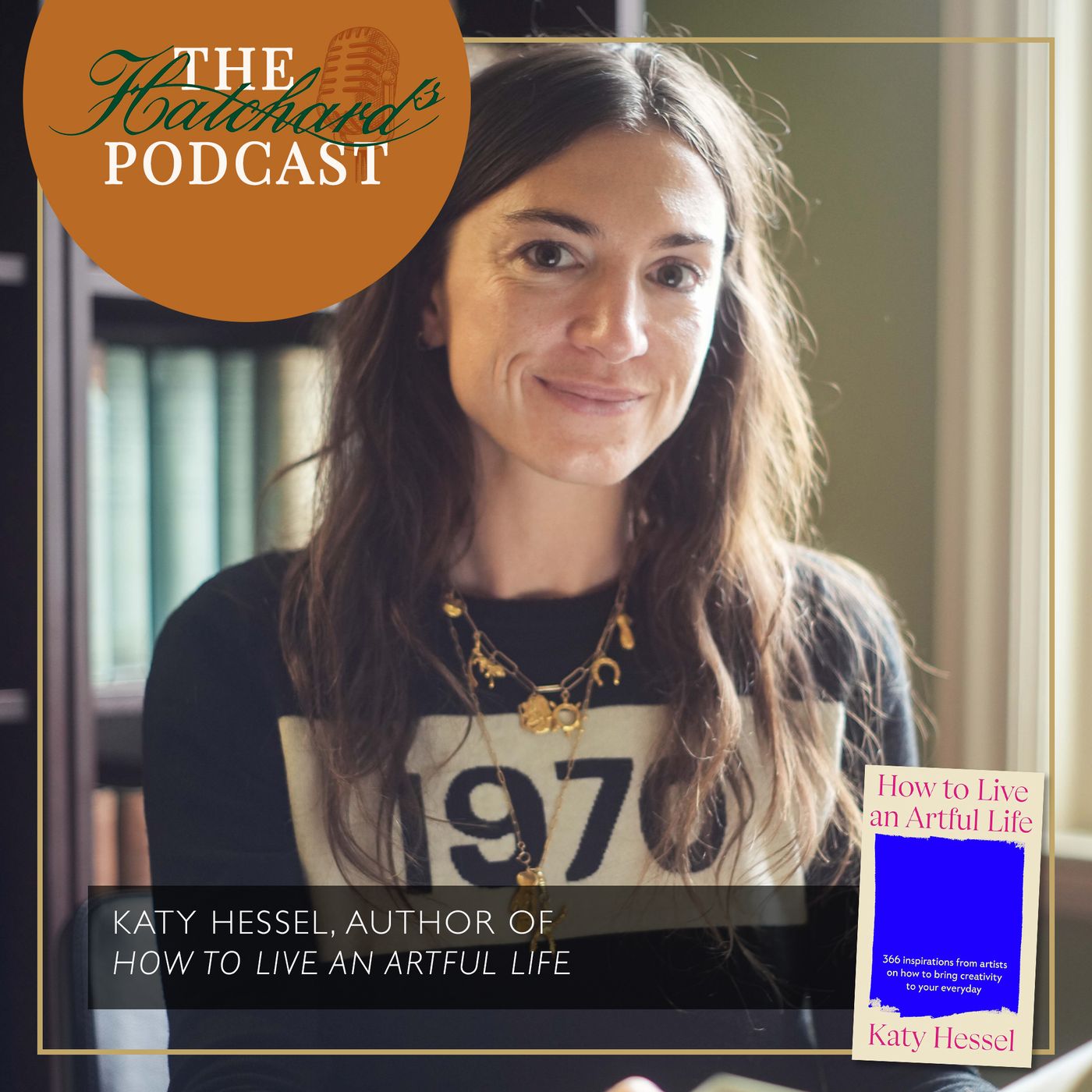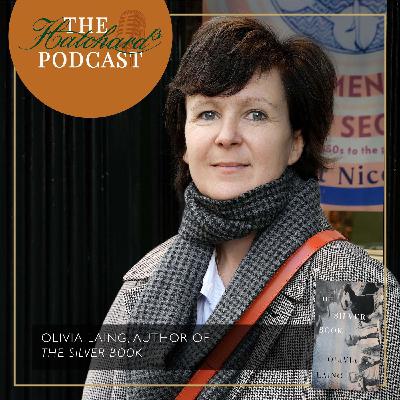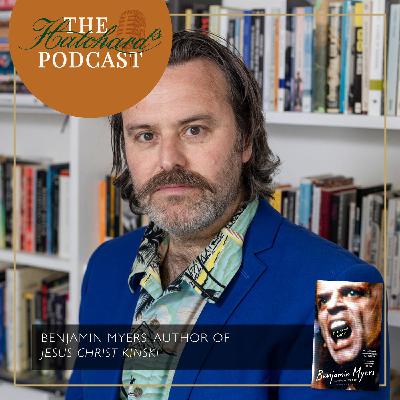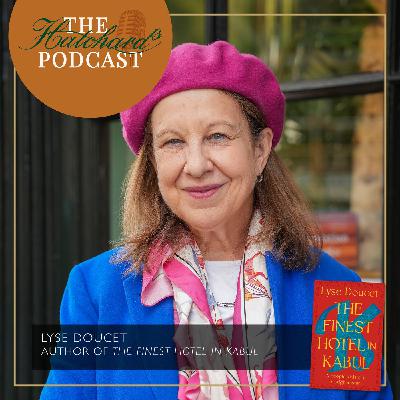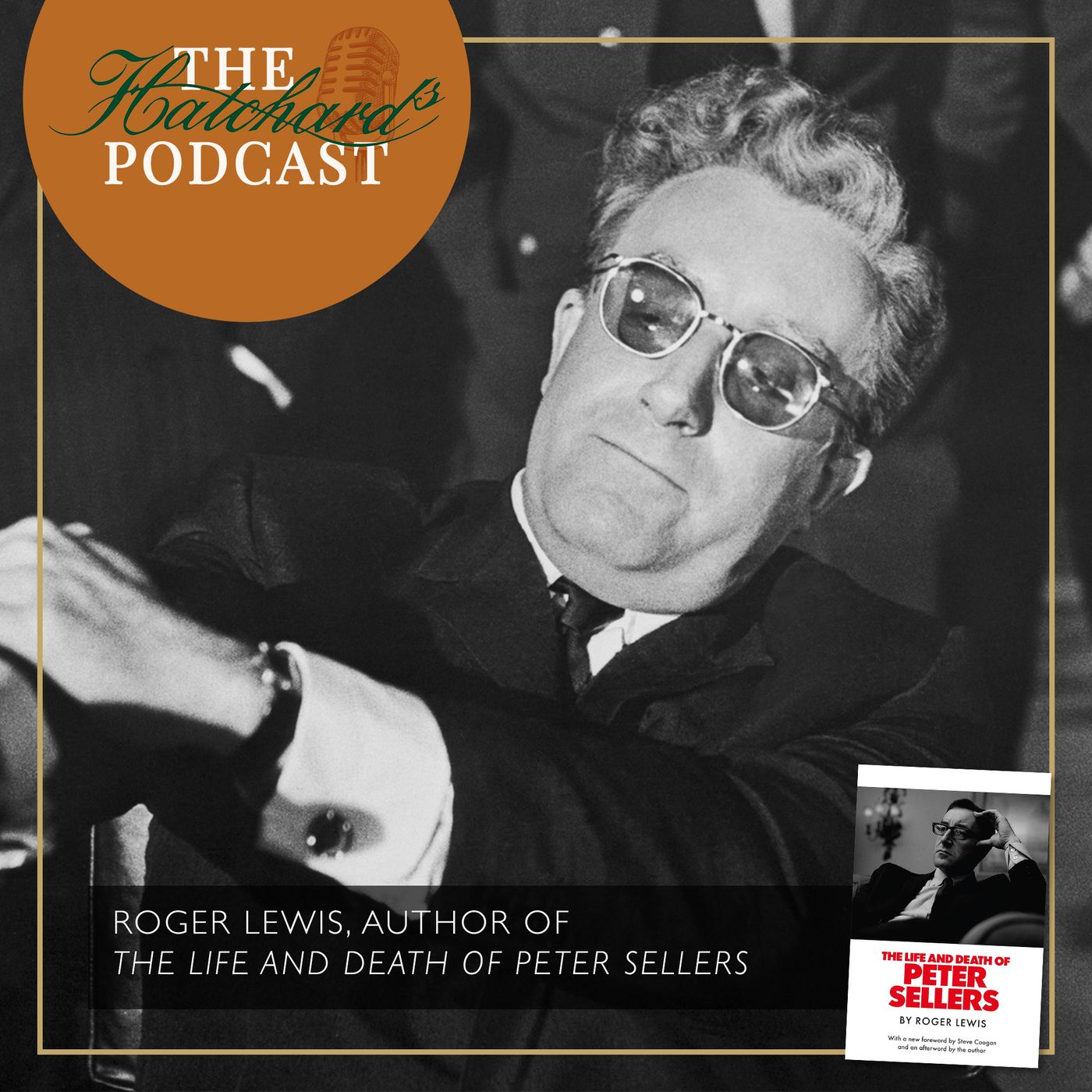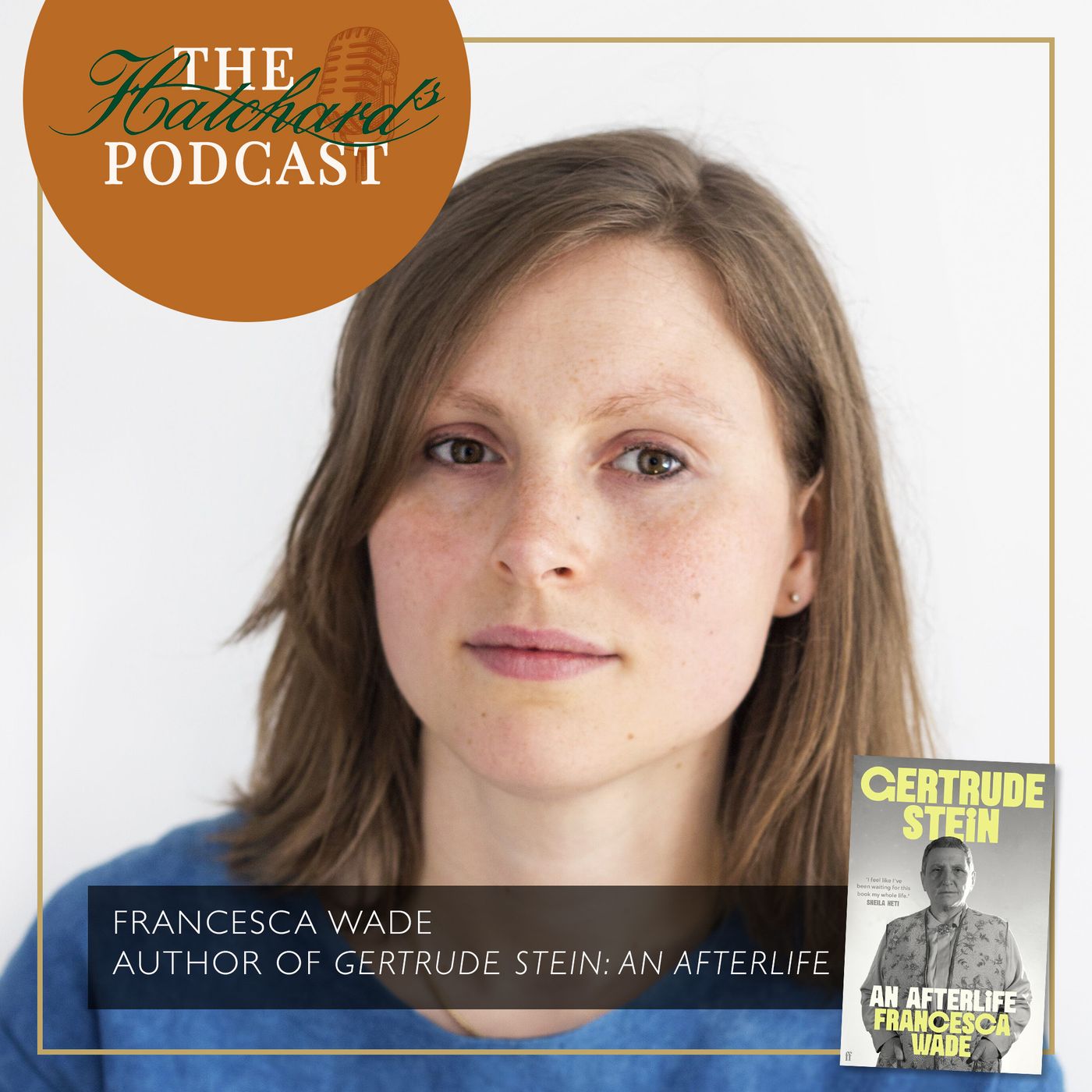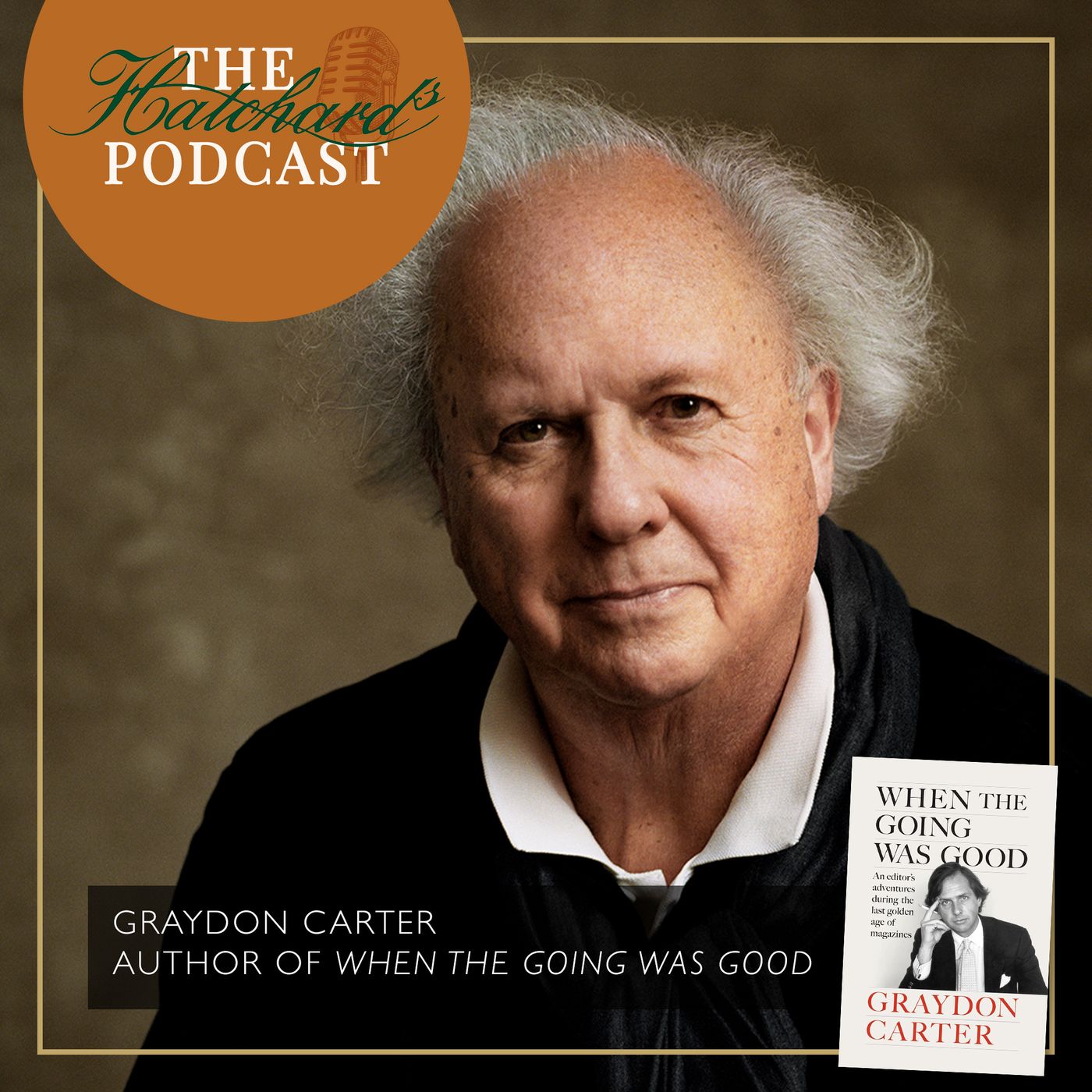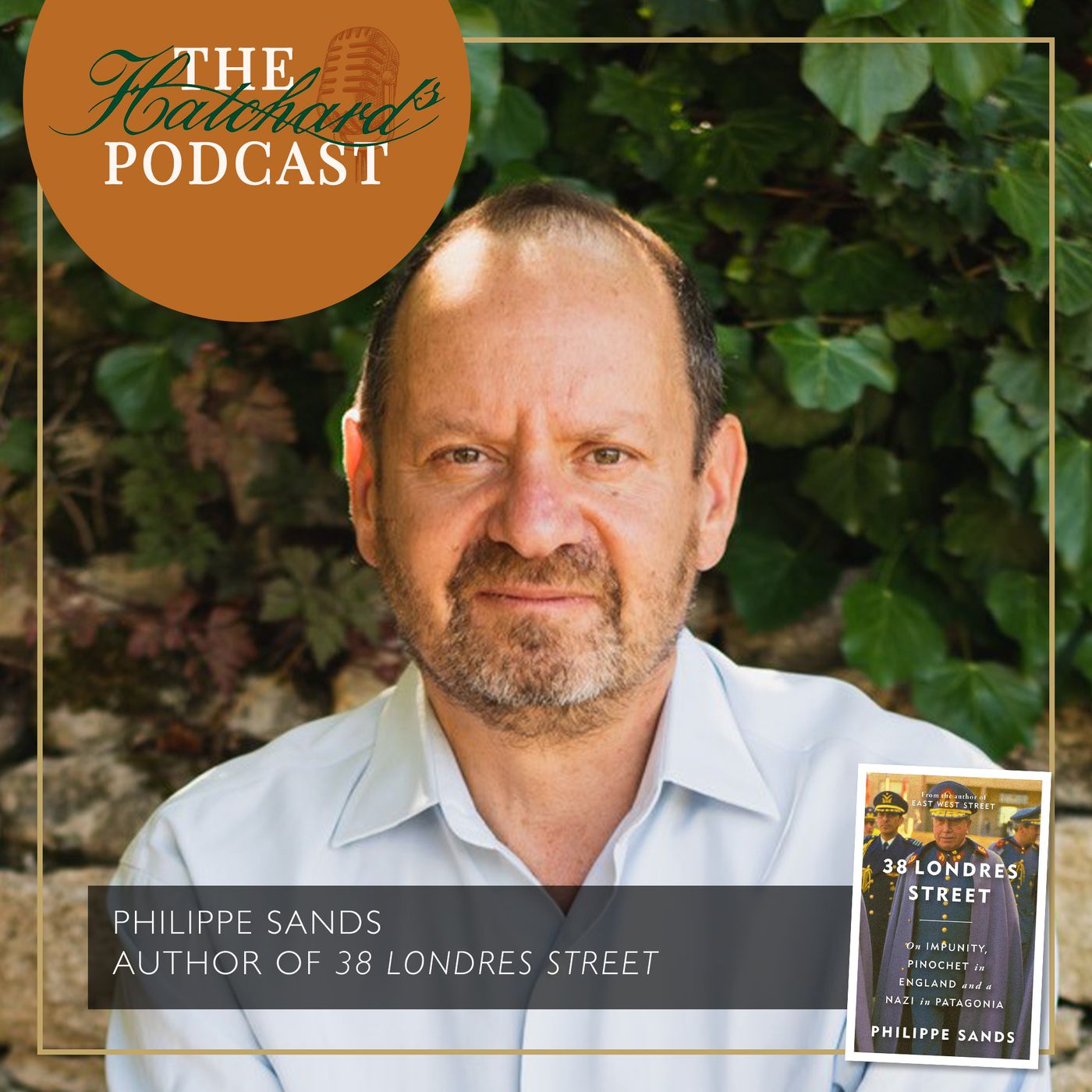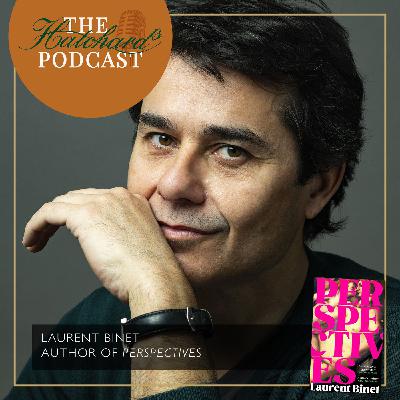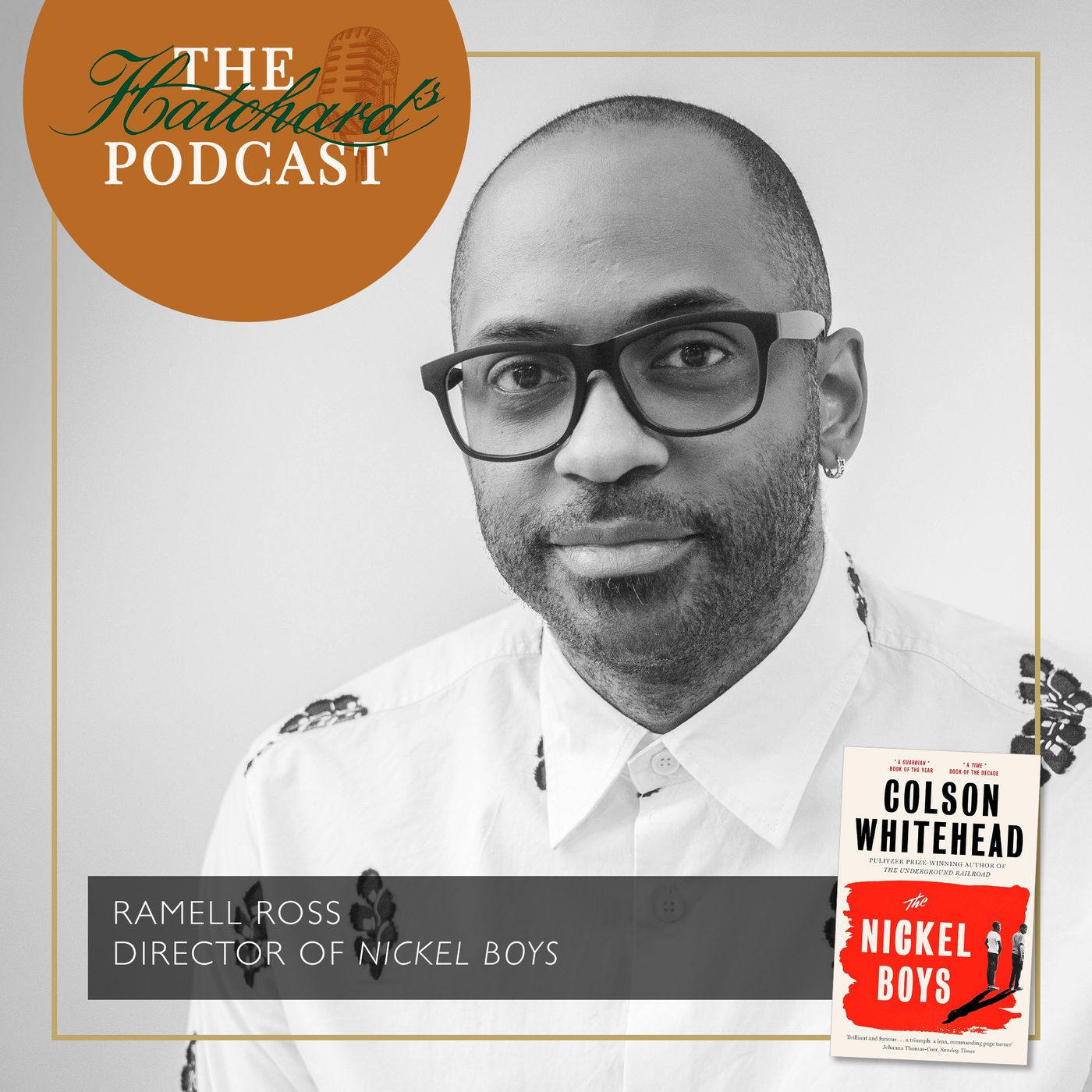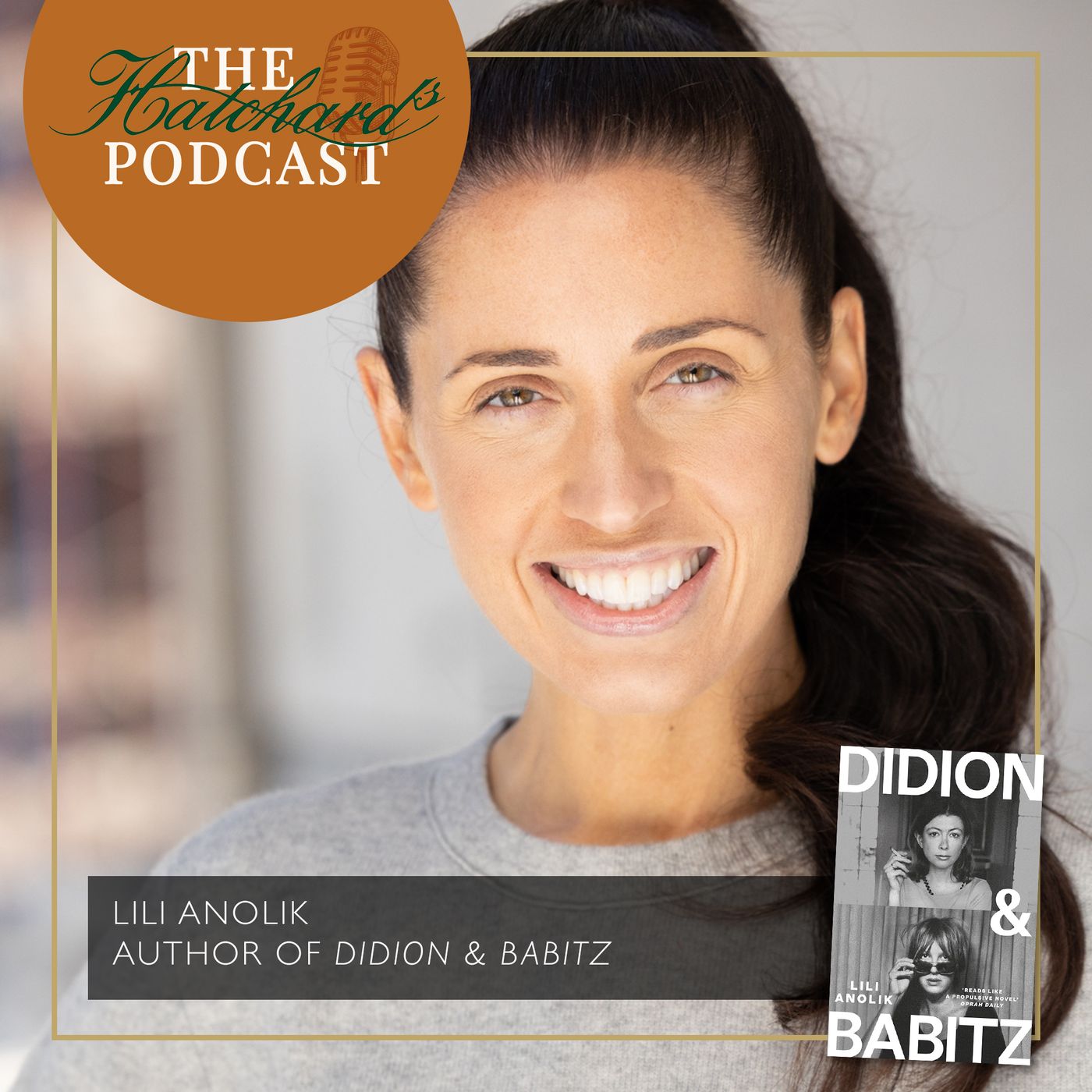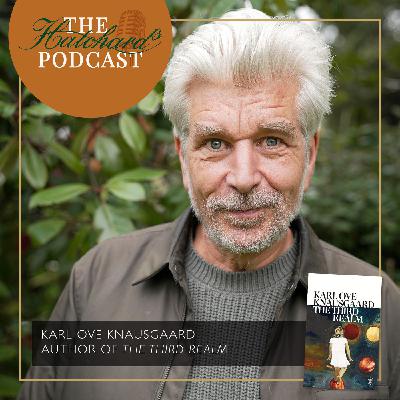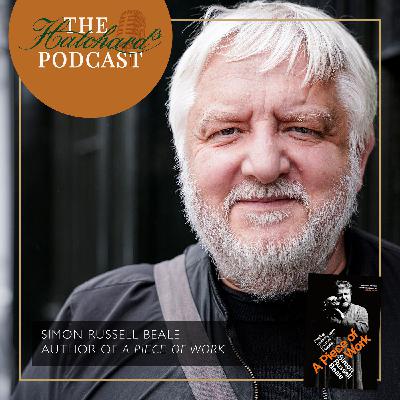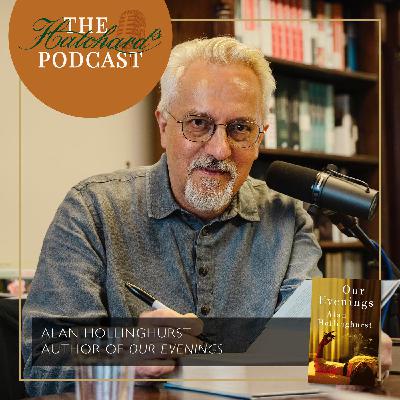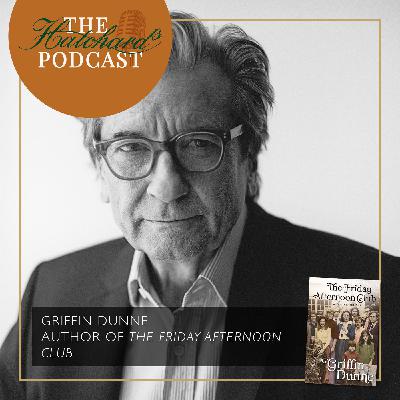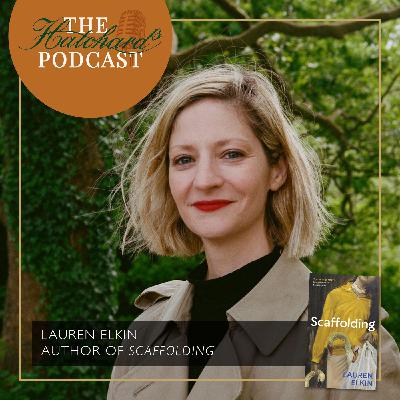Discover The Hatchards Podcast
The Hatchards Podcast

The Hatchards Podcast
Author: Ryan Edgington and Matt Hennessey
Subscribed: 33Played: 513Subscribe
Share
© Hatchards
Description
The Hatchards Podcast is a conversation show about books brought to you by England’s oldest bookshop. Featuring interviews with some of our favourite authors, bookish waffle, and the occasional glass of wine. Hosted by Ryan Edgington and Matt Hennessey.
63 Episodes
Reverse
On this episode, we were joined by the writer, art historian, and host of The Great Women Artists podcast, Katy Hessel.Katy’s new book How to Live an Artful Life is a collection of 366 inspirations from her favourite artists and writers, designed to motivate readers to find creativity, beauty, and meaning in everyday life. Many of the ideas in the book stem from her acclaimed podcast, where Katy speaks to artists, curators, and thinkers whose work continues to expand our understanding of art history.Needless to say, there’s a certain meta quality to this conversation, as we compared notes on the art of conversation itself — as well as London, museums, childhood inspirations, and the influence of other books about creativity by figures such as Julia Cameron.Katy first appeared on this podcast back in August 2022, just before the release of her groundbreaking debut The Story of Art Without Men, a book that redefined the canon and changed the course of her career. It began a conversation that has led to collaborations with museums, galleries, and artists around the world. Her new collection distills these experiences into a vibrant companion for anyone seeking a more artful way of living.Hosted by Ryan Edgington.
On this episode, we had the pleasure of sitting down with Olivia Laing to discuss their extraordinary new novel, The Silver Book, which has been selected as a Hatchards Book of the Month for November. Set amid the turbulence of Italy’s Years of Lead, the novel is full of rich and deliberate contradictions: it’s a love story coloured by political extremism; a journey through Rome’s legendary film studio, Cinecittà, that sidesteps glamour in favour of the artisans and craftspeople who brought cinematic illusions to life. At its heart is a character who recalls Patricia Highsmith’s Tom Ripley, though driven more by naïveté than malice. Olivia spoke with us about the deep immersion in Italian history and culture that informed their writing, and about the figures of Federico Fellini and Pier Paolo Pasolini — both major characters in the novel — whose contrasting creative visions shaped modern Italian art and cinema. They also reflected on how Italy’s fraught political history continues to resonate today, offering unexpected parallels with contemporary Britain. Hosted by Ryan Edgington and Matt Hennessey.
On this episode, we were joined by Benjamin Myers, the prize-winning writer and journalist, to discuss his new novel Jesus Christ Kinski. It’s November 1971 in Berlin, and actor Klaus Kinski performs a one-man show that quickly descends into chaos and recrimination. Fifty years later, a writer snowed in during the pandemic winter of 2021 becomes obsessed with the performance and compelled to write something like a biography of the tortured figure. Recalling Geoff Dyer’s Out of Sheer Rage—a book about trying and failing to write about D.H. Lawrence—Myers ventures into similar territory, offering a mercilessly funny look at one of the twentieth century’s most volatile public figures. We talk with Benjamin about Kinski’s modern relevance as both artist and self-mythologising provocateur; the line between genius and narcissism, madness and evil; and how today’s culture might have treated a man like him. As a music journalist, Benjamin also reflects on the decline of the “rock star” persona in an age that expects entertainers to model good behaviour. Hosted by Ryan Edgington and Matt Hennessey.
On this episode, we had the privilege of sitting down with Lyse Doucet, the BBC’s Chief International Correspondent, to discuss her powerful new book The Finest Hotel in Kabul: A People’s History of Afghanistan.Now nominated for the Baillie Gifford Prize, this deeply personal work reflects Lyse’s decades of reporting on Afghanistan from the Intercontinental Hotel in Kabul, during which she forged lasting connections with both the hotel’s staff and its guests. These relationships have shaped her unique perspective on the country’s turbulent history.Lyse spoke with us about her remarkable career reporting from the frontlines, as well as her reflections on writing, the changing media landscape, and the responsibilities and challenges that come with international journalism. She also offered her perspective on how Afghanistan is too often seen only through the lens of conflict, and why it is important to recognise the country’s rich cultural heritage alongside its history of war.Hosted by Ryan Edgington and Olivia Robinson.
On this episode, we welcome back Roger Lewis, whose deeply researched and gleefully idiosyncratic biographies of British performing artists have come to constitute a genre all their own. Our subject is the book that began it all: his classic The Life and Death of Peter Sellers, newly reissued in a hardback edition with a foreword by Steve Coogan. In its pages, Lewis makes the case that Sellers was, alongside Olivier, perhaps the finest British actor of the twentieth century — even as he remained one of the most impossible. In our conversation, he conjures Sellers as a man without a core, a figure of astonishing mimicry in whom there was no enduring sense of self. From The Goon Show to The Ladykillers, from The Pink Panther to Dr. Strangelove and Being There, the magnificence of the performances remains undeniable. But so, too, is the destruction he left in his wake. Hosted by Ryan Edgington.
On this episode, we were joined by Francesca Wade to discuss her groundbreaking new biography, Gertrude Stein: An Afterlife. This book paints a dual portrait of Gertrude Stein by dividing her story into two parts: her life and her afterlife. Doing this not only brings her partner, Alice B. Toklas, into clearer view, but also separates Stein’s work and its lasting impact from her larger-than-life personality. Francesca takes us behind the scenes of her exhaustive research—from exploring the Yale archives, which hold over 75 years of manuscripts, personal letters, and photographs, to visiting the French countryside where Stein and Toklas lived during the German occupation. We also discuss how Toklas, left behind after Stein’s death, devoted herself to preserving Stein’s legacy, even as she struggled with legal battles and near-poverty while living surrounded by Picassos she couldn’t bring herself to sell.Hosted by Ryan Edgington and Olivia Robinson.
On this episode, we're joined by legendary magazine editor Graydon Carter to discuss his memoir, When the Going Was Good, an intoxicating portrait of his 25-year reign as editor of Vanity Fair, and an extraordinary life shaped by curiosity, conflict and impeccable taste.We begin at Spy, the satirical magazine he co-founded, which targeted New York’s cultural establishment with reckless abandon, coining the infamous "small hands" insult for Donald Trump. Later, he reflects on his turbulent start at Vanity Fair, where he was initially hated by staff, the close working relationship he developed with photographer Annie Leibovitz, and the founding of the Vanity Fair Oscar Party, now a more coveted invitation in Hollywood than the ceremony itself.Throughout our conversation, Carter shares countless juicy anecdotes — from receiving a Scientology plaque from Tom Cruise to helping Fran Lebowitz find the perfect suit — and explores how magazine journalism has lost its lustre in the digital age.
On this episode, we're joined by author and international human rights barrister Philippe Sands to talk about his latest book, 38 Londres Street, a gripping exploration of justice, memory, and impunity through the intertwining stories of Chilean dictator Augusto Pinochet and Nazi fugitive Walter Rauff who spent decades in Chile avoiding extradition.We consider the groundbreaking legal concept of universal jurisdiction through the lens of Pinochet's dramatic 1998 arrest in London—a defining moment that transformed international justice—and what it means for the complex geopolitics of today. Drawing inspiration from literary figures like Roberto Bolaño, Bruce Chatwin, and Ariel Dorfman, Sands blends detective-style nonfiction with profound moral complexity, tracing the ominous echoes among Nazi Germany, fascism, and the Cold War. He also tells us about the book's sensational reception in Chile, where the effects of his reporting have reignited long-suppressed debates about accountability and national memory. In typical fashion, we also cover everything from Pinochet's visit to Hatchards a few days before his arrest—where he reportedly bought every book he could find on Napoleon—to his compulsive viewing of Star Wars films while awaiting trial.
On this episode, we’re joined by writer and fashion critic Charlie Porter to discuss our Fiction Book of the Month, Nova Scotia House—a powerful love story that summons a lost generation, set against the backdrop of the UK AIDS crisis and its aftermath throughout the 1980s and ’90s.Our discussion of the novel’s vivid characters and cultural history offers a fascinating window into queer life in London at the close of the 20th century—and into Charlie’s own personal journey toward living without fear.In true form, we also cover everything from Virginia Woolf and the Bloomsbury Group to the feud over “punk” between British artist and filmmaker Derek Jarman and fashion icon Vivienne Westwood. Charlie also shares his love of Proust and 19th-century literature, despite his improbable hatred of Madame Bovary.Finally, we discuss the resurrection of the UK AIDS Memorial Quilt—consisting of 42 twelve-foot-by-twelve-foot panels—which Porter has helped present at Tate Modern in London this summer.Signed copies of the book are available in-store and on our website. Listeners of The Hatchards Podcast can receive 15% off at checkout with the code “NOVA15.”Hosted by Ryan Edgington and Olivia Robinson.
On this episode, we were joined by Lola Kirke, the British-American actress and musician known for Mozart in the Jungle, Mistress America, and Gone Girl, who has written Wild West Village—a witty and moving essay collection described by Booklist as the “Andy Warhol Diaries for rich New York City art kids of the new millennium.”The book follows Kirke’s famous family—including her father, Simon (drummer for Free and Bad Company), and her sister, Jemima (of HBO’s Girls)—from West London to the West Village, as Lola navigates life in a family of larger-than-life personalities who party hard, exude effortless cool, and embody talent, beauty, and sophistication.
On this episode, we were joined by Laurent Binet, the Prix Goncourt-winning author of HHHH, to discuss his new novel, Perspectives—a murder mystery set in Renaissance Florence, where Giorgio Vasari (possibly the world’s first art critic) is tasked with finding the killer of one of the city’s most prominent painters.Like much of Binet’s previous work, the novel is a historical counterfactual: the period’s mise-en-scène is precisely rendered, but the story he tells is playful and inventive."Playful" is also a word that can be used to describe Binet himself. As a guest, he’s funny, laid-back, and happy to go down the rabbit hole with us as we discuss everything from Proust to Philip Marlowe, Simenon to Stanley Kubrick.
On this episode, we were joined by Oscar-nominated filmmaker RaMell Ross, director and co-writer of Nickel Boys, the new screen adaptation of Colson Whitehead's Pulitzer Prize-winning novel.Rated five stars by The Times and The Guardian, hailed as a "masterpiece" by The Independent, and recently named Best Film of 2024 by the National Society of Film Critics, Ross' film is a transformative adaptation of Whitehead's novel, employing a first-person POV that faithfully translates the book's prose experience into the language of cinema.RaMell spoke to us about the daunting task of adapting the work of a literary icon, his unique journey from potential NBA prospect to artist, his love of J.D. Salinger, and whether genre-oriented books make for the most successful screen adaptations.
On this episode, we were joined by Lili Anolik, contributing editor at Vanity Fair, and author of Didion & Babitz, a provocatively entertaining account of the feud between two key countercultural voices of the 1960s and '70s – the iconic Joan Didion and the lesser-known Eve Babitz. Lili spoke us to about her decade's long obsession with Eve Babitz, her scepticism of the Didion mystique, Pauline Kael, and the crucial role that Los Angeles played in the development of these two literary titans.Covering everyone from Charles Manson to Marcel Duchamp, Lili takes us headlong into two tumultuous decades, demonstrating why Eve Babitz considered Los Angeles in the 1970s to be the Moveable Feast that Hemingway and Fitzgerald experienced in the Paris of the '20s. Hosted by Ryan Edgington and Matt Hennessey. Produced by Lily Woods.
In this episode, we were joined by Karl Ove Knausgaard, author of one of the key literary phenomenons of the 2010s, My Struggle, to discuss his latest novel, The Third Realm, the latest instalment in the riveting Morning Star series.Karl Ove spoke to us about his journey toward becoming more at ease in literary interviews, his relationship with his work in translation, and how music informs one’s sense of identity—contrasting, for instance, his youthful love of punk and R.E.M. with his daughter’s of Ariana Grande. We also discuss “artistic preciousness” and how he has evolved from seeing writing as “sacrosanct” to being able to work at the kitchen table despite constant interruptions.Hosted by Ryan Edgington and Matt Hennessey. Produced by Lily Woods.
On this episode, we were joined by the iconic actor, writer, and filmmaker Richard Ayoade to discuss his latest comic novel, The Unfinished Harauld Hughes, a fictional accounting of his quest to canonise the most significant British playwright of the 20th century (who also happens to be entirely made up). Richard spoke to us about the figures that influenced the invention of Hughes–among them Harold Pinter and Orson Welles–and the ill-fated film Hughes authored, "O Bedlam, O Bedlam", which stopped the prolific playwright from ever writing again. He expressed scepticism about the myths and exaggerations that create "great lost works" and literary recluses and discussed why it is important to approach comic writing from the inside out rather than trying to make fun of your characters. For good measure, we also discuss his deep love of "Spinal Tap", Joan Didion, and the time he spent acting in Wes Anderson's "The Wonderful Story of Henry Sugar."
On this episode, we were joined by the legendary British actor, Sir Simon Russell Beale CBE, to discuss his first memoir from a life on the stage, A Piece of Work: Playing Shakespeare & Other Stories. Often described as the "best stage actor of his generation," Simon shares insights into the whopping 18 Shakespeare characters he has played throughout his career with the RSC and the National Theatre. He generously invites us into his process as an actor and explains why the personal and working relationships he has formed with collaborators like Sam Mendes and Nicholas Hytner are essential to his extraordinary success. Lastly, we discuss encounters with performing legends such as Stephen Sondheim and Lauren Bacall and an example of what it means to recieve a "bad note" from a director.
On this episode, we were joined by Booker Prize-winning author Alan Hollinghurst to discuss his new novel, Our Evenings, releasing 3 October. Immersing us in the revolutionary world of British theatre in the 1960s, the novel follows Dave Winn, an English actor of Burmese descent, through his experiences of success and failure, love and heartbreak, acceptance and hatred, and a final coda that reshapes our entire understanding of this extraordinary story.Alan shares insights from his decades-long career of portraying queer life in Britain across the 20th and 21st centuries, highlighting how cultural and political shifts have influenced his storytelling.He also offers us a sense of both the attraction and repulsion that draws him toward a world of wealth and privilege, leaving his characters—and perhaps himself—on the outside, looking in.Hosts: Ryan Edgington and Matt Hennessey Producer: Lily Woods
On this episode, we were joined by Booker Prize-shortlisted author Elif Shafak to discuss There Are Rivers in the Sky, her centuries-spanning new novel that follows three historical characters connected by ancient bodies of water. We cover matters great and small, from the idea of water as a holder of memory to whether Elif is the type of person who will dispose of a tea mug or article of clothing once there is visible damage to it. We explore her relationship with The British Museum, inevitably weighing in on the much-politicised Elgin Marbles debate, and whether cultural artefacts belong to a region’s government or its people. Finally, we discuss Elif’s years of investigation by the Turkish government following the publication of The Bastard of Istanbul, with its depiction of the Armenian Genocide, and the surreal nature of seeing your fictional characters be put on trial in a court of law.Hosted by Ryan Edgington and Matt Hennessey.
On this episode, we were joined by actor and writer Griffin Dunne to discuss The Friday Afternoon Club, his fascinating memoir of his famous family – among them writers Joan Didion and John Gregory Dunne – and his remarkable career in Hollywood starring in films like Martin Scorsese's After Hours and An American Werewolf in London. We also discuss his lifelong friendship with the late Carrie Fisher, and what it was like to watch his best friend and flatmate be propelled to unimaginable fame after she starred as Princess Leia in Star Wars. Finally, Griffin provides insights into how he navigated writing the great tragedy of his family history: the murder of his sister Dominique at 22-years-old, she too on the cusp of cinematic stardom. Signed copies of the book are available to purchase at our London Piccadilly location as well as on our website.
On this episode, we were joined by author Lauren to discuss her hypnotising debut novel, 'Scaffolding', which charts the lives of two couples, both living in the same Paris apartment almost fifty years apart.Lauren spoke to us about the decades-long journey towards bringing this novel to life, and how her career as a translator and non-fiction writer allowed her to freedom to craft this book in precisely the way she envisioned it. We also spoke about monogamy and relationships, and how the novel was crafted 'in the key of Eric Rohmer,' the idiosyncratic 20th-century filmmaker who told Paris-set stories following the romantic and moral conflicts of glamorous young people.


